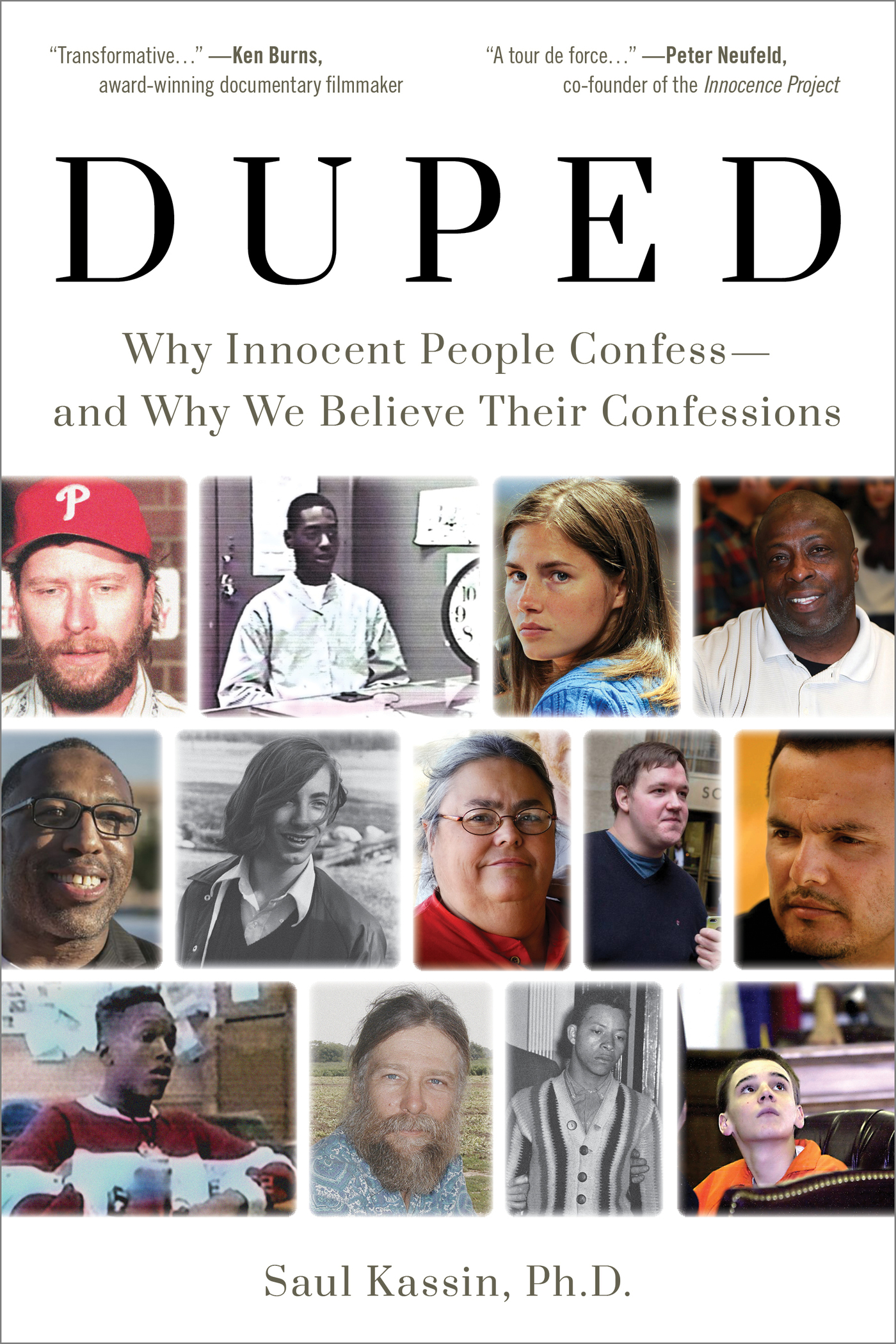Duped
Why Innocent People Confessand
Why We Believe Their Confessions
Saul Kassin


An imprint of The Rowman & Littlefield Publishing Group, Inc.
4501 Forbes Boulevard, Suite 200
Lanham, Maryland 20706
www.rowman.com
Distributed by NATIONAL BOOK NETWORK
Copyright 2022 by Saul Kassin
All rights reserved. No part of this book may be reproduced in any form or by any electronic or mechanical means, including information storage and retrieval systems, without written permission from the publisher, except by a reviewer who may quote passages in a review.
British Library Cataloguing in Publication Information Available
Library of Congress Cataloging-in-Publication Data
Name: Kassin, Saul M., author.
Title: Duped : why innocent people confess and why we believe their confessions / Saul Kassin.
Description: Lanham, MD : Prometheus, [2022] | Includes bibliographical references and index. | Summary: This conclusive and comprehensive book reveals the psychology behind why innocent men and women, intensely stressed and befuddled by the promises, threats, trickery, and deception of a police interrogation, are duped into confession, no matter how horrific the crime. Featuring riveting case studies, highly original research, work done in tandem with the Innocence Project, and quotes from individuals who confessed to crimes they did not commit, Duped tells the story of how this happens, how the system turns a blind eye, and how to make it stopProvided by publisher.
Identifiers: LCCN 2021038835 (print) | LCCN 2021038836 (ebook) | ISBN 9781633888081 (cloth ; alk. paper) | ISBN 9781633888098 (epub)
Subjects: LCSH: Police questioningPsychological aspects. | Confession (Law)Psychological aspects. | Innocence (Psychology) | False arrest. | Judicial error. | Criminal psychology.
Classification: LCC HV8073.3 .K37 2022 (print) | LCC HV8073.3 (ebook) | DDC 363.25/4dc23
LC record available at https://lccn.loc.gov/2021038835
LC ebook record available at https://lccn.loc.gov/2021038836
 TM The paper used in this publication meets the minimum requirements of American National Standard for Information Sciences Permanence of Paper for Printed Library Materials, ANSI/NISO Z39.48-1992.
TM The paper used in this publication meets the minimum requirements of American National Standard for Information Sciences Permanence of Paper for Printed Library Materials, ANSI/NISO Z39.48-1992.
I dedicate this book to the countless false confessors
whose personal experiences have informed
and inspired my research.
Preface
Why I Wrote This Book
When I was in the sixth grade, Mrs. Avery was my teacher. Young and fresh off a stint with the Peace Corps in Uganda, she had slides to show class and stories to tell. Growing up in Brooklyn, I was mesmerized by her worldly experiences.
One of our first written homework assignments was to read a biography and write a book report. For me, the biographical subject was easy: Mickey Mantle.
Having become baseball conscious after the Dodgers left town in 1958 and before the Mets arrived in 1962, I was a Yankees fan (it didnt hurt that they were perennial World Series champions). Switch-hitting center fielder Mickey Mantle, wearing the number seven on his back, was my pinstriped hero. Somewhere, I might still have reel-to-reel tapes of his home runs as they were broadcast on the radio.
I read a biography, and then a second. I was only twelve but I liked to write (later that year, I wrote a short story, which I still have, about an inventor who patented a wristwatch that could regulate body temperature). The point is, this book report was to me a labor of love. Plus, I really wanted to impress Mrs. Avery.
It was a Friday afternoon when she returned everyones graded handwritten papers. I was excited to get my grade. She called my name, then glared at me, and I looked down only to see an F circled and in red. I was stunned. I went up to her after class thinking it had to be a mistake. No mistake. She flunked me on the paper, she said, because I plagiarized it.
Mrs. Avery didnt ask if I plagiarized; nor did she try to get me to admit it. Very simply, she accused me and convicted me, both in the same sentence. End of conversation.
I dont remember what I said, if anything. All I can recall is the powerful urge to hold back tears. I was too old to cry with dignityin front of her or in front of my classmates. So I walked out in silence trying like hell to keep it together. That stoic face lasted until I opened the door at home, saw my mother, and broke down.
My mother is my hero for what happened nextand, I will add, for so much more. She knew Id spent a whole lot of time on that assignment. When I told her what happened, she bee-lined for Mrs. Avery, who assumed that I must have copied my report off a book jacket. She didnt have proof, she saidjust the sense that the paper was too well written. I wasnt there, but my mother told her to find proof of plagiarism or apologize. She went to the library, apparently, found no proof, changed the grade, and apologized.
I tell this story because I will not forget my sense of helplessness at being accused of something I didnt doand discerning no good way to defend myself. Add the highest of stakes to that experience, and youll understand in part why the subject matter animates me.
* * *
Fast forward half a century or so. Over the course of my career, I have collected some shocking research data and Ive witnessed some horrifying miscarriages of justice.
Ive seen police extract confessions from young teenagers and other vulnerable suspects using jaw-dropping forms of deception and implied and sometimes explicit promises and threats.
Ive seen police trick mothers out of their sons interrogations, in one instance switching rooms after a bathroom break, not telling her where they moved, and inducing her thirteen-year-old son to confess.
Ive seen police outright lie about evidence to break someone down into a state of despairfor example, telling a suspect, falsely, about his fingerprints on the weapon, his hair in the victims grasp, an eyewitnesss identification, or the results of an allegedly failed polygraph exam.
Ive seen judges unwilling to serve as the gatekeepers they get paid to be by failing to exclude from evidence confessions that were quite clearly coerced, not voluntary.
Ive seen prosecutors bend logic until it breaks, refusing to concede innocence despite DNA results that excluded the confessor, without doubt, and identified the actual perpetrator.
Ive read contemporaneous newspaper accounts during trial that accepted the governments public relations spin on the case, hook, line, and sinker.
Ive received heart-wrenching letters from countless prisoners, many of whom were later absolved, and desperate family members writing on their behalf.
Ive been cross-examined by hostile prosecutors, one of whom, while seeking to re-convict an innocent confessor who had already been exonerated by DNA, referred to me on the record as the insufferable Dr. Kassin.
Ive done battlein court, on stage, and in printwith those who train detectives in the kinds of trickery and deceit that con innocent people to confess.
I was berated and threatened by fringe bloggers belonging to an Amanda Knox hate group after writing in support of her ultimately successful appeal in Italy.

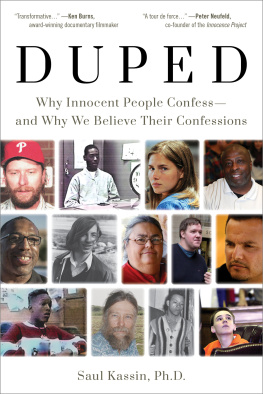
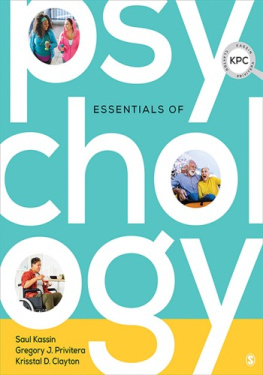
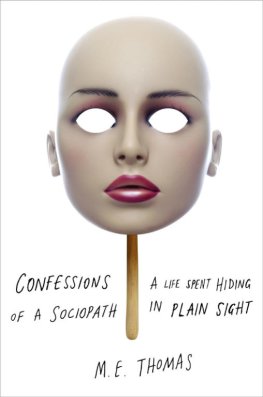


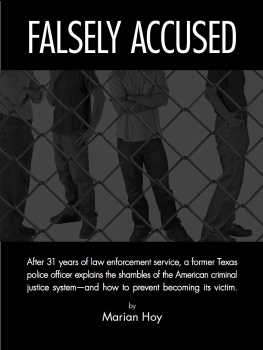
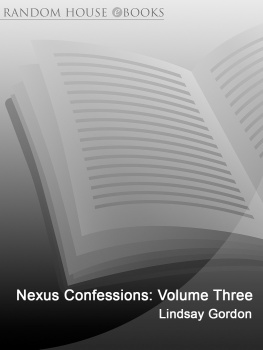

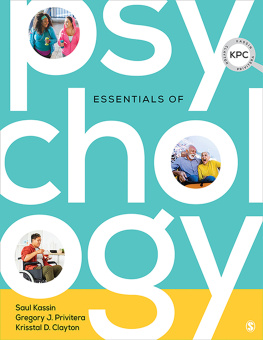
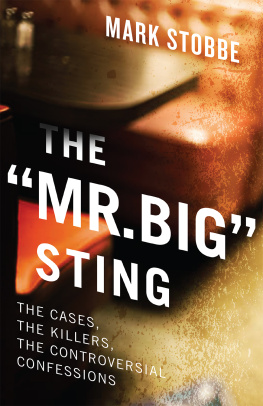
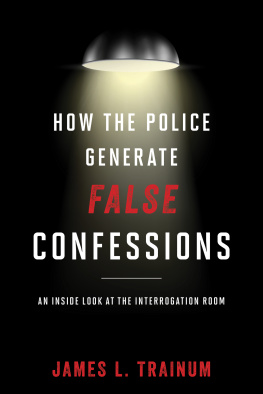




 TM The paper used in this publication meets the minimum requirements of American National Standard for Information Sciences Permanence of Paper for Printed Library Materials, ANSI/NISO Z39.48-1992.
TM The paper used in this publication meets the minimum requirements of American National Standard for Information Sciences Permanence of Paper for Printed Library Materials, ANSI/NISO Z39.48-1992.